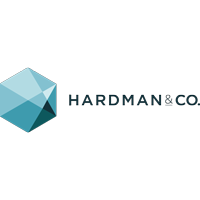Shield Therapeutics plc (LON:STX) is the topic of conversation when Hardman and Co’s Analyst Dr Martin Hall caught up with DirectorsTalk for an exclusive interview.
Q1: Shield Therapeutics was one of the worst performing healthcare stocks in 2020, but I see that you have recently published an update, does this report discuss the underperformance?
A1: As we entered 2020, hopes were high for STX shares. Having done the difficult part by obtaining US regulatory approval of its oral iron replacement therapy, Feraccru or Accrufer as it will be called in the US, the company’s prime objective was to close a commercial deal in the US. Then in January, it closed a development and commercial deal with ASK Pharma for China and some other markets in SE Asia and put out a positive trading statement. So, everything was looking good at that point.
But as the year progressed, there were some disappointments, which culminated in December with the company stating that it would not conclude an acceptable US commercial deal by the end of the year. At this point, the shares were severely knocked back, leading to the overall underperformance for the year.
Q2: How can the shares recover from this?
A2: Well, the point of the report is to highlight the opportunity that still exists in the US. From a commercial perspective, little has changed, except that positioning of oral Accrufer in a COVID-19 environment offers even greater potential since it obviates the need for patients to attend hospital for the current gold standard intravenous iron replacement. So, every day that Accrufer is not on the market represents lost income.
During all the negotiations that took place during the last 18 months, a number of privileged documents on all aspects of the commercialisation process were shared with the company’s management. With the likelihood of a commercial deal diminishing, the Board and management determined that it was not rocket science and that there was no reason why it could not commercialise the drug itself and retain far more of the profits. However, with little commercial experience, there is an execution risk to be considered.
Q3: So how much better are the returns if the company sells Accrufer itself?
A3: We have modelled the partnering versus the company-led commercial strategies and, putting it simply, a partner would need to sell over three times more drug in order to deliver the same return to STX. But, given the size of company that STX has been talking with, we believe that both approaches would yield similar market shares. Consequently, we conclude that the company-led commercial option would comfortably offer better returns for shareholders.
Q4: Given your compelling argument, why are the shares still falling?
A4: Let me take you back a step. One of the expectations from a commercial deal for a drug is that the partner would pay an upfront fee for access to a regulatory de-risked proposition. Like myself, most analysts had something like $25-$40m in our models and this was going to be used to fund the next two years working capital. So, in the absence of a deal, STX will require funding not only for the US commercialisation costs, but also for the group’s every day working capital needs. We estimate that this to be about $30-40m. or £25-30m.
Although all of this could come from specialist pharmaceutical financing vehicles, these tend to be relatively expensive, but do have the advantage of being non-dilutive. In addition, given the fall in the share price, if it was all raised from equity, it would potentially be very dilutive. So, for modelling purposes, we considered a 50:50 blend in the report.
Also, as you are aware, markets hate uncertainty, and in this case, the Board has not made a final decision on which approach it will be taking, so the threat of an equity raise coupled with the uncertainty is putting more pressure on the shares.
Q5: So how would you sum things up?
A5: In my opinion, I believe that the US market, especially with COVID-19, offers a significant opportunity for Shield Therapeutics. I also believe that the company is acutely aware of the lack of experience and the commercial execution risks, and has recruited, on a consultancy basis initially, some experienced sales managers to help the Board with its decision to go-it-alone.
As we have seen many times before, when the market gets wind of a potential equity issue, it does mark down the stock in advance, it is then up to existing shareholders to protect their positions and support any issue.
But at the current level, the downside risk is extremely limited, the current market cap of just £58m is more than supported by the deals that the company already in place for Europe and China, so anything from the US is all upside. And there will be something from the US, it is just a question of how much and over what timeframe.
From a small shareholders perspective, the company has indicated that consideration would be given to small investors to participate in an equity issue on the same terms as the institutions.
To conclude, I expect the stock to perform well once the uncertainty on both US strategy and how it will be funded is removed.





































